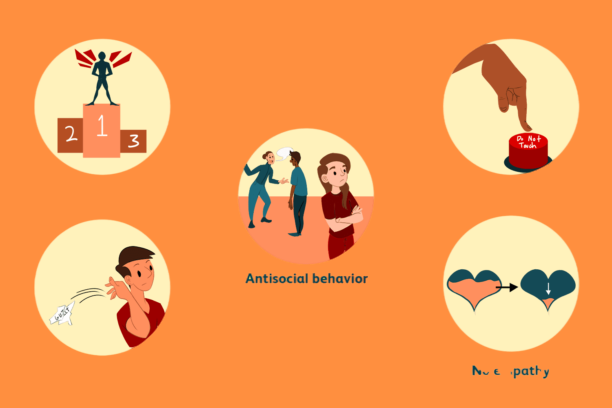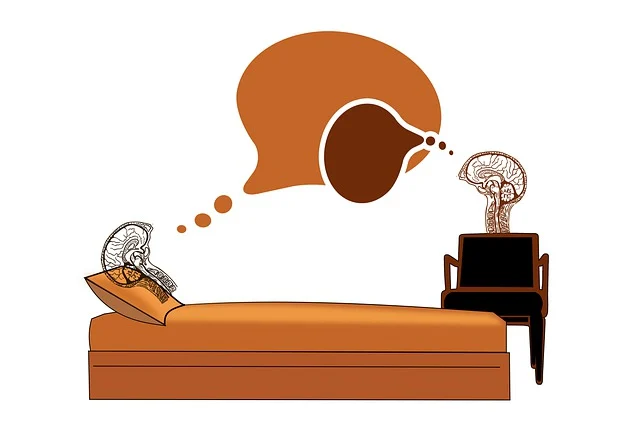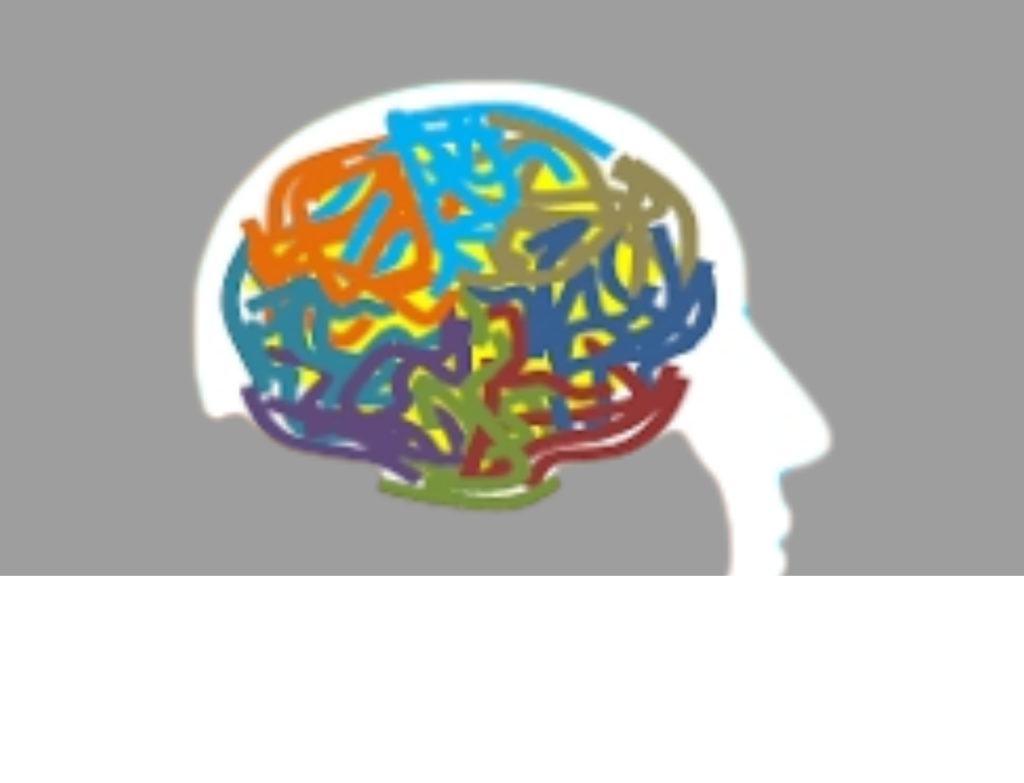The word “psychopath” designates a person who is morally reprehensible, emotionless, and ruthless. It is frequently used in clinical and legal contexts to describe someone who is frequently egocentric, antisocial, lacks regret and empathy for others, and frequently has criminal tendencies—despite the fact that it is not a recognized mental health diagnosis.
This article explains the psychopathy personality traits in males.
What is psychopathy?
The absence of empathy and the blunting of other emotive emotions are characteristics of psychopathy. Psychopaths are very manipulative because they lack empathy, are callous, and are detached. Still, psychopathy is one of the hardest mental illnesses to identify.

Psychopaths can present as nice, regular people. Beneath that, they have no conscience at all. Their tendency for antisocial behavior makes them more likely to commit crimes, though not always.
Psychopaths arouse public curiosity and cause psychological suffering: Although treatments are available to treat callous, unemotional youth in the hopes of preventing them from developing into psychopaths, adult psychopathy is generally resistant to treatment.
Psychopath Personality traits
These are the following psychopath personality tarits:
1. Phantasmal Charm
Psychopaths have a remarkable capacity for charm, charisma, and persuasion. Given that female psychopaths tend to be more sociable and emotional than their male counterparts, this may be particularly true for them. They may not possess genuine empathy, but they are frequently adept at “faking” Prosocial traits including politeness, flattery, and phony pity. They may utilize these abilities to manipulate others into giving them what they desire, but eventually they can no longer maintain the act. The charisma and charm will most likely fade with time, revealing an underlying brutality or coldness.
2. Needless Cruelty or an Insensitive Pattern
After the initial charisma and charm wear gone, a psychopath frequently exhibits cruel or mean moments. These could include scathing remarks, gossip, violent outbursts at people, or finding amusement in injuring or embarrassing someone else. A psychopath’s characteristic cruelty and meanness usually result in a pattern of violating other people’s rights.
3. Falsehoods, Vanity, and Insincerity

It is common for psychopaths to engage in pathological lying. To acquire what they want, boost their ego, or influence others to think, feel, or act a certain way, they could embellish the truth. Lying is a guilt-free hobby for psychopaths, but for normal individuals, being caught in a lie usually causes them to feel guilty or at least a little concerned. As a matter of fact, lying is one of the symptoms of ASPD that can manifest as someone “faking” regret and empathy for others.
4. Not Taking Responsibility and Assigning Blame
Some of the most terrible, violent, and cruel crimes in society are carried out by psychopaths. They seldom ever accept accountability for their deeds, though. Rather, regardless of how awful their behaviors are, they are more prone to place the blame elsewhere, offer justifications, and attempt to defend them. This psychopath’s warning sign indicates that they lack morality and conscience, which means they do not share the majority of people’s sense of “right and wrong.”
5. The Need for Dominance, Power, and Control
Because they take pleasure in dominating and controlling others, many psychopaths aspire to be in positions of authority and power. Research indicates that psychopaths may look for and obtain leadership roles in the corporate sector, indicating that the stereotype of the “psychopathic CEO” may not be entirely untrue. This need for control is also recognized to be a result of the overlap between psychopathy, narcissism, and Machiavellianism (immoral and exploitative inclinations).
6. Sadistic Pleasure in Anguish and Suffering
A perverted feeling of enjoyment from the anguish and suffering of others is called sadism. Some psychopathic individuals find sexual pleasure in the suffering of others. Contrarily, pleasure is not sexual and is more closely associated with power, excitement, or the “rush” of the moment. Sadism is not a prevalent trait in psychopaths, but it is one that they frequently possess, which could help to explain why psychopathic qualities have an 80% accuracy rate in predicting violent and sexually violent crimes.
7. Boredom and Search for Excitation

Psychopaths need a lot more to delight, excite, or make them joyful than the average person since they lack part of the typical emotional wiring that most people possess. Due they are not motivated by strong emotions, psychopaths are often less impulsive than sociopaths; nonetheless, due of their muted emotional reaction, they may seek out pleasures. This could be the reason why psychopaths are more prone to commit crimes, act violently, and have extramarital affairs, and abuse drugs or alcohol.
8. Ignore the Laws, Rules, and Norms
Psychopaths frequently act immorally or illegally because they do not adhere to the same moral standards as the majority of individuals in society. These could be significant crimes like violence and criminality, or they could be little infractions like offensive language and remarks. While not all violent criminals are psychopaths, a significant portion of offenders, particularly those who commit violent crimes, have psychopathic tendencies.
9. Indifferent & Fearless of Repercussions
Many people who commit crimes do so out of constant fear of being discovered. Psychopaths, however, don’t necessarily worry about the same things. This could be partially explained by the theory that psychopaths have anomalies in brain regions linked to impulse control, sound long-term decision-making, and typical fear reactions.
10. A detached, cold, and heartless manner
Psychopaths frequently have a harsh, chilly, and uncaring manner. It is thought that because of the structural variations in their brains, they are less able to sense the whole gamut of human emotions and are hence less prone to have intense emotions. A psychopath may exhibit strange detachment or apathy when interacting with people who are depressed, angry, nervous, or enthusiastic.
Psychopathic diagnosis
Since psychopathy is not recognized as a legitimate mental illness, professionals diagnose ASPD instead. The DSM-5 lists four cluster B personality disorders, of which this is oneTrusted Source. The other three are as follows:
- dysfunction of the borderline personality (BPD)
- NPD (narcissistic personality disorder) and
- HPD (histrionic personality disorder)
It’s vital to note that diagnosing and treating ASPD comes with certain particular difficulties before going into the criteria used to make the diagnosis.
Diagnostic criteria
A mental health specialist will perform a thorough mental health evaluation in order to obtain an accurate diagnosis. In the procedure, the mental health specialist will assess the individual’s:

- Feelings and thoughts
- patterns of behavior
- partnerships
The mental health specialist will note symptoms and contrast them with the DSM-5’s ASPD criteria.
A person must consistently disrespect and violate the rights of others in order to be diagnosed with ASPD. According to the DSM-5, this is indicated by three or more Trusted Sources of the following criteria:
- failing to abide by social norms on appropriate behavior, such as engaging in activities that could result in an arrest, lying repeatedly, using aliases, or tricking people for fun or financial gain
- impatience, lack of planning, impulsivity, and aggression, frequently resulting in violent altercations or assaults
- irresponsible disregard for one’s own or others’ safety, persistent irresponsibility, inability to maintain regular work conduct, or failure to fulfill financial commitments
- lack of regret, indifference to, or justification for harming, mistreating, or stealing from another person
Treatment of psychopathy

The root cause of psychopathy is antisocial personality disorder, one of the most challenging mental health conditions to cure. Empirical evidence indicates that psychopaths seldom pursue treatment voluntarily, and when they do, it typically doesn’t result in sustained amelioration or transformation.5. In fact, among those with a history of violent and criminal behavior, treatment actually makes them more likely to commit crimes, according to several research comparing treated and untreated psychopaths.
Cognitive behavioral therapy
A form of psychotherapy known as cognitive behavioral therapy (CBT) teaches patients how to recognize and alter unhelpful or distressing thought patterns that negatively impact their emotions and behavior.
By recognizing unhelpful thought, emotional, or behavioral patterns and substituting them with constructive ones, cognitive behavioral therapy blends cognitive and behavioral therapies.
The goal of cognitive behavioral therapy is to alter the automatic negative beliefs that exacerbate anxiety, sadness, and other emotional problems. Our mood is also negatively impacted by these impulsive negative thoughts.
Bad thoughts are recognized, contested, and replaced with more realistic, objective thoughts through cognitive behavioral therapy (CBT).



